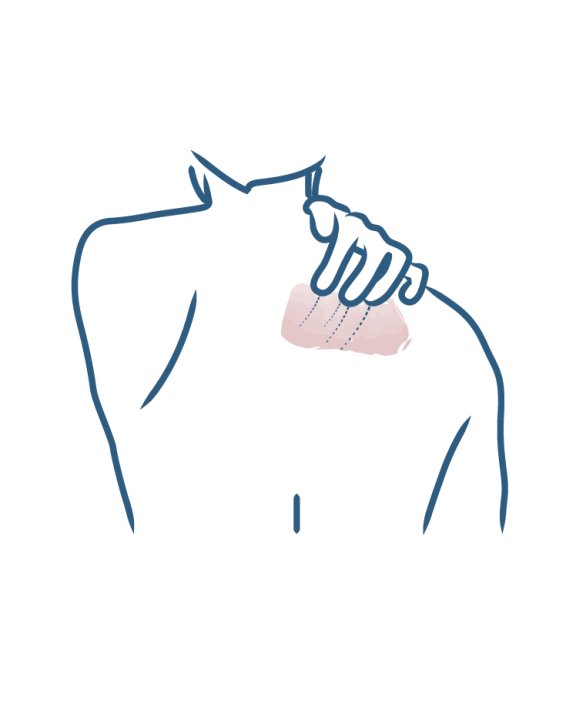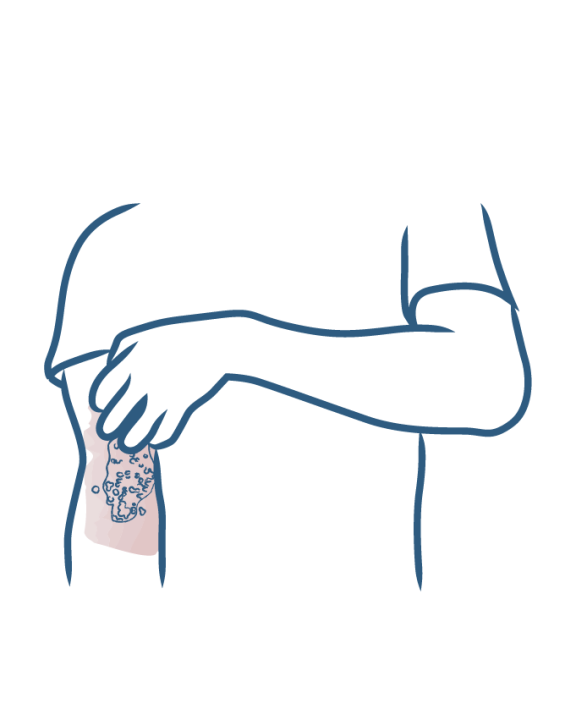Occupational dermatoses
- SUMMARY
- Eczema
Occupational dermatosis in the construction and public works industry
- Living with eczema day to day
- What soap should be used for eczema?
- Eczema cream, ointment: what should you use?
- Eczema: can it be cured?
- Eczema: how to treat itching
- Swimming pool, swimming when you have eczema?
- Which detergent should eczema patients use?
- Eczema: how can flare-ups be avoided?
- What are the habits to avoid when you have eczema?
- Eczema: What daily reflexes should you adopt?
- Eczema: what foods should you eat?
- What causes eczema?
- Clothing contact eczema
- Contact eczema due to cosmetics
- Contact eczema due to nickel and chromium
- Stress-induced eczema
- Hereditary eczema
- Perspiration-induced eczema
- Contact eczema due to cleaning products
- Allergy-induced eczema
- Contact eczema due to medication and topical treatments
- Body eczema: hands, feet, arms, back, face, etc.
- Arm eczema (elbows, armpits, forearms)
- Eczema of the eyelids, eyes or palpebral eczema
- Foot eczema
- Eczema around the mouth
- Leg eczema or varicose eczema
- Eczema in the ears
- Hand and finger eczema (chronic hand eczema)
- Facial eczema
- Eczema on the stomach and belly button
- Eczema on the neck and nape of the neck
- Scalp eczema
- Eczema on the back
- What is infantile eczema?
- What soap should be used for babies with eczema?
- Eczema in babies and children: the areas most often affected
- Eczema in babies: what habits should you adopt?
- Cortisone cream to relieve eczema?
- How should you treat baby’s and infant’s eczema?
- When should you consult a physician about your baby's eczema?

Occupational dermatosis in the construction and public works industry
The construction and public works industry includes many professions: masons, tilers, plumbers, painters, etc. Construction trades put your hands to the test and can lead to the appearance of an occupational dermatitis.
What are the occupational dermatoses in the construction and public works industry?
Eczema in the construction industry is very varied in its presentation and origin. Occupational eczema observed in the construction industry includes both irritative lesions, due to friction, cold, heat, humidity, solvents, detergents, etc. and allergic eczema lesions due to paint, glue, metal tools, etc. Occupational dermatoses in the construction industry mainly affect the hands because they are on the front line throughout the working day.
What are the products involved in occupational construction industry dermatoses?
The construction industry is very diversified and involves the handling of many irritating and/or allergenic products.
In the case of occupational dermatosis, it is essential to consult a dermato-allergist, who will "conduct the investigation" and determine which substances are involved. The occupational physician must also be notified; they are a key resource because of their extensive knowledge of professional environments.
In the case of allergic eczema, allergy tests carried out on construction and public works industry employees reveal allergies to chemicals contained in glues, cements, solvents, etc. Cement allergy mainly affects masons, while solvent allergy affects painters more often.
How can you avoid occupational construction industry dermatoses?
Prevention is essential to avoid the development of occupational eczema. Wearing gloves is recommended, as well as the application of an insulating barrier cream before and during work. After work, wash hands with soap and water rather than using aggressive solvents, especially if you are allergic to white spirit. In the evening, apply a soothing repair cream to the hands.
In some cases, occupational dermatosis is recognized as a genuine occupational disease. The employee cannot return to their position as it stands and must consider a career change that is compatible with their dermatosis.
More information
- Discover Occupational hairdressers’ dermatosis
Occupational dermatoses
Occupational hairdressers’ dermatosis
- Discover Occupational dermatitis of cleaning staff
Occupational dermatoses
Occupational dermatitis of cleaning staff
Our care routines
Skin prone to atopic eczema, contact eczema, chronic eczema and/or, eyelid eczema
Dermatological expertise
To better understand your skin and hair, discover our exclusive content and innovative care products designed to improve your quality of life..





